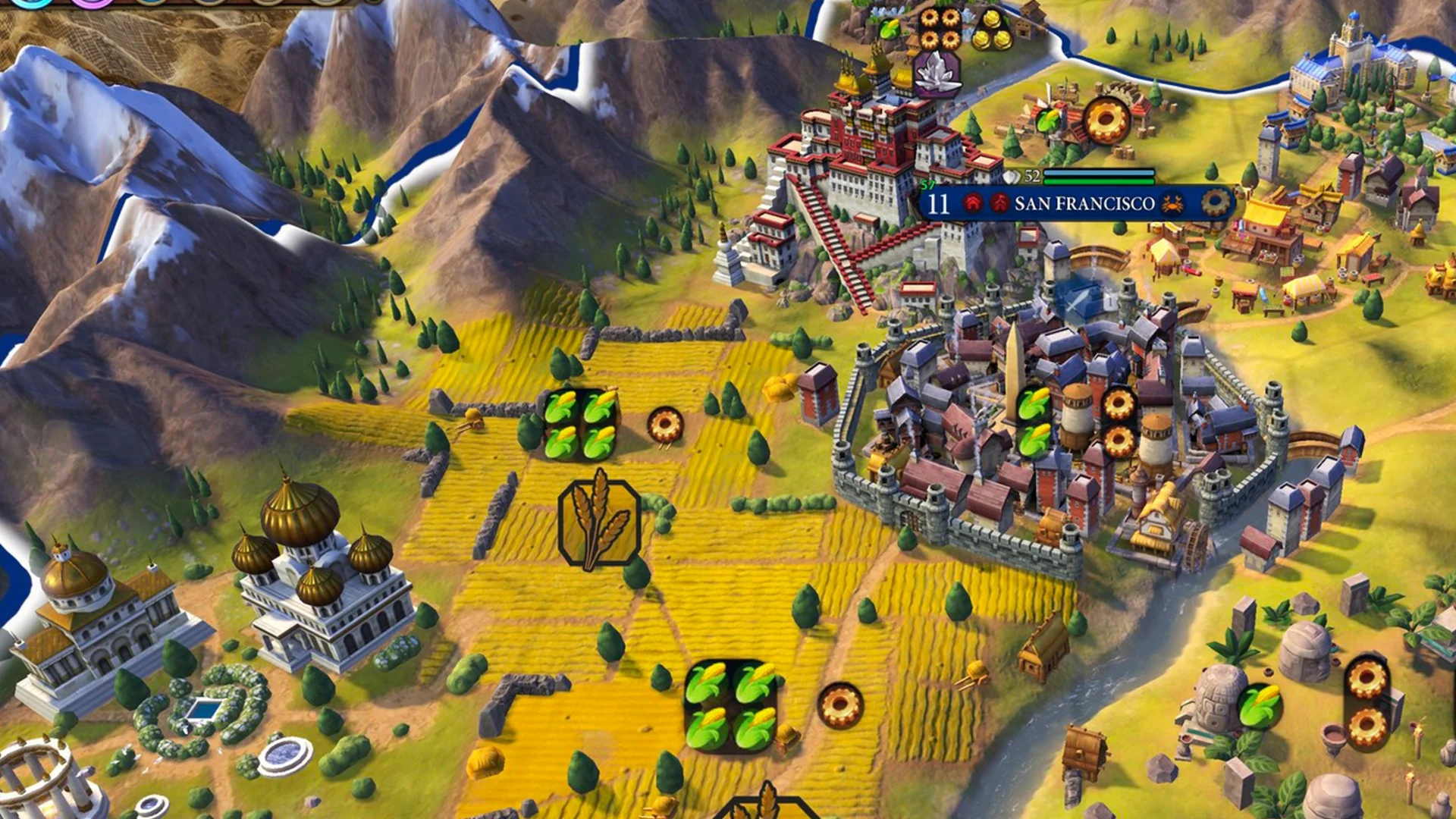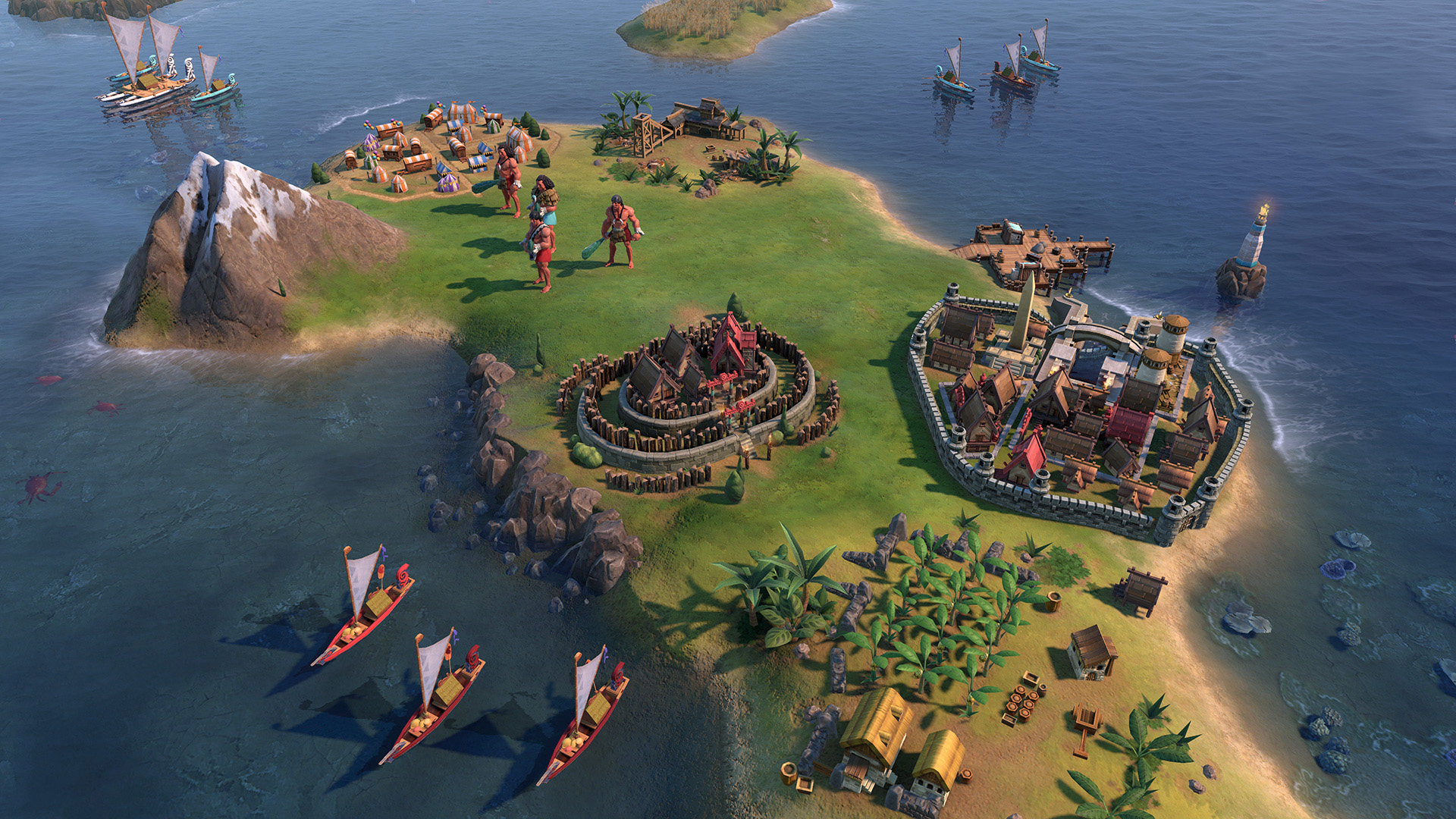 When it comes to strategy games, few franchises have left a mark as significant as Sid Meier’s Civilization. Since its inception in 1991, the series has been synonymous with turn-based strategy, empire-building, and the famous “One More Turn” addiction. Civilization VI, the latest major installment (excluding spin-offs and DLCs), took everything fans loved about the previous games and introduced fresh mechanics that deepened the gameplay experience. This review was written by Kiomet
When it comes to strategy games, few franchises have left a mark as significant as Sid Meier’s Civilization. Since its inception in 1991, the series has been synonymous with turn-based strategy, empire-building, and the famous “One More Turn” addiction. Civilization VI, the latest major installment (excluding spin-offs and DLCs), took everything fans loved about the previous games and introduced fresh mechanics that deepened the gameplay experience. This review was written by Kiomet
But is Civilization VI still the king of turn-based strategy, or has its time passed? Let’s break down the game’s mechanics, features, expansions, and overall impact to see why it remains one of the best strategy games available on PC.
Core Gameplay – A Time-Tested Formula with New Twists
At its heart, Civilization VI follows the same basic structure as its predecessors: you start with a small settlement in 4000 BC and guide your civilization through thousands of years of history. You expand, explore, exploit resources, and engage in diplomacy or warfare with other nations. Victory can be achieved through different paths, including domination, science, culture, religion, or diplomacy.
However, Civilization VI introduced a number of key changes that set it apart:
1. Unstacked Cities – The District System
One of the biggest innovations in Civ VI is the way cities develop. Instead of cramming all buildings into a single tile, cities now spread out across the map with specialized districts.
For example:
-
A Campus district boosts scientific research.
-
A Holy Site generates religious points and enables the spread of faith.
-
A Commercial Hub increases gold income.
This forces players to think more strategically about city placement, making terrain and adjacency bonuses crucial.
2. Active Research and Civics System
Unlike previous Civilization games, where technological advancement was mostly passive, Civ VI introduced Eureka moments and Inspirations. These provide research boosts when you complete specific in-game actions. For example:
-
Killing a barbarian might boost military technology research.
-
Building a coastal city speeds up shipbuilding advancements.
This system encourages players to adapt their strategy instead of blindly following a tech tree.
3. More Dynamic AI and Diplomacy
The AI in Civ VI is more personality-driven than before. Leaders have unique agendas that influence how they interact with you. For instance:
-
Gandhi still loves peace but will nuke you if you test his patience.
-
Montezuma values luxury resources and will befriend you if you have them.
-
Trajan (Rome) prefers civilizations that expand quickly.
The diplomacy system also improved with the Gathering Storm expansion, which introduced global warming, diplomatic votes, and new negotiation tactics.
Expansions and DLC – A Game That Keeps Growing
While Civilization VI launched as a solid game, its expansions significantly enhanced the experience.
Rise and Fall Expansion
This DLC introduced a new system of Golden Ages, Dark Ages, and Loyalty. Cities now have loyalty meters, and if they become unhappy, they can rebel and join other civilizations. The Golden Age mechanic rewards strong leadership, while a Dark Age can challenge players to rebuild morale.
Gathering Storm Expansion
Perhaps the most impactful expansion, Gathering Storm added:
-
Natural disasters (volcanoes, floods, hurricanes)
-
Climate change and rising sea levels
-
A World Congress with diplomatic victories
-
New strategic resources like coal and oil affecting global warming
This expansion made the late game more interesting by adding environmental consequences to industrialization.
New Frontier Pass (DLC Pack)
Instead of a full expansion, Firaxis introduced a DLC pass, which brought new civilizations, leaders, and game modes. Some notable additions:
-
Apocalypse Mode: More disasters, plus a giant meteor you can summon!
-
Secret Societies Mode: Join hidden factions with special powers.
-
Heroes & Legends Mode: Mythical figures like Hercules and Beowulf enter the game.
These updates gave players fresh ways to experience Civilization VI, even years after its release.
Multiplayer and Replayability
One of Civ VI’s greatest strengths is its replayability. No two games are ever the same, thanks to procedurally generated maps, leader differences, and varied victory conditions.
Multiplayer is also well-supported, allowing for both turn-based play and Play By Cloud (asynchronous play over days or weeks). While AI opponents can be unpredictable, the best challenge comes from playing against human opponents in long strategic battles.
Graphics and Sound – A Unique Style
Unlike the more realistic art style of Civilization V, Civ VI adopted a colorful, cartoonish design. This choice initially divided fans, but over time, it became clear that the style made the game more visually readable. Each civilization and leader is distinct, with unique animations and expressions.
The sound design is also excellent. Every civilization has its own theme music that evolves over time, becoming more complex as the ages progress. The narrator, voiced by Sean Bean, adds a dramatic touch to historical quotes, making every technological discovery feel significant.
Criticism and Downsides
Despite its many strengths, Civ VI is not without flaws:
-
AI Inconsistencies – While the AI is better than Civ V, it still makes questionable decisions, like launching surprise wars with no clear strategy.
-
Late-Game Slowdown – Once you reach the modern era, turns can take longer due to increased unit and city management.
-
Overpriced DLC – While expansions add a lot, some players feel the total cost of all content is too high.
-
Multiplayer Bugs – Online play can sometimes be unstable, with desync issues and crashes.
However, most of these issues can be mitigated with patches and mods.
Final Verdict – Is Civilization VI Worth It?
Even years after its release, Civilization VI remains one of the best strategy games on PC. It balances deep strategic gameplay with accessible mechanics, making it enjoyable for both newcomers and veteran players. The expansions add even more depth, keeping the game fresh with each playthrough.
Pros:
✔ Deep, engaging gameplay with multiple victory paths
✔ Unique city-building mechanics with districts
✔ Beautiful music and strong voice acting
✔ Expansions that improve diplomacy and climate systems
✔ Highly replayable with various leaders and strategies
Cons:
✖ AI can be unpredictable and sometimes irrational
✖ Late-game turns can drag
✖ DLC pricing is steep
Final Score: 9/10
If you love strategy games, Civilization VI is a must-play. With its immersive world-building, dynamic diplomacy, and endless replayability, it’s easy to see why this game remains a fan favorite.